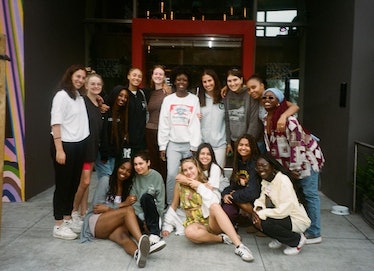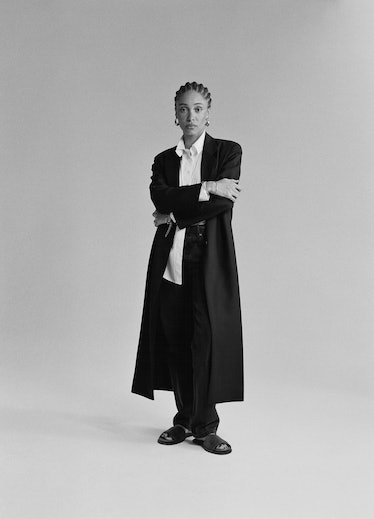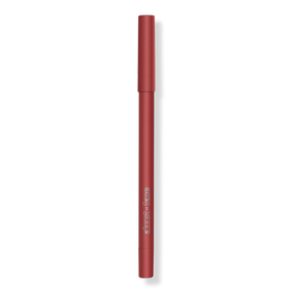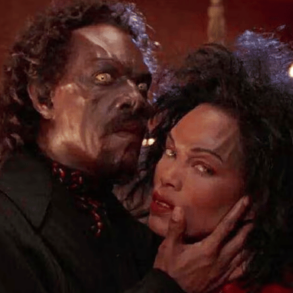Throughout her years in the spotlight, the model Adwoa Aboah has been refreshingly transparent about her struggles—with bipolar disorder, addiction, confidence—as well as her access to resources when tackling and overcoming them. “During my mental health journey, I came at it from quite a privileged place,” the 31-year-old tells W. “But still, it was mental to me that I hadn’t been educated in mental or sexual health.” If she, an admittedly advantaged Londoner, felt underprepared to face the obstacles of life, what did that mean for women across the globe? It was that question, in part, that compelled Aboah to launch Gurls Talk, a community-led non-profit organization that promotes the emotional health and well-being of adolescent girls and young women.
Since its debut in 2015 as an Instagram account, Gurls Talk has grown exponentially with events, organized festivals, and an ambassadors program. In 2020, it gained 501c3 status in the United States becoming an official charity. “Everything has changed massively,” says Aboah. “I didn’t realize how needed this was. It’s amazing how many people we’ve reached.” While there are many facets to the organization, perhaps the most public-facing is its podcast of the same name hosted by Aboah. After a brief hiatus, the series is making its timely return this year on October 10th, World Mental Health Day, with the first of 36 episodes covering everything from imposter syndrome to the state of the care economy.
You launched Gurls Talk eight years ago. Looking back, what was your primary motivation to start it?
There are many reasons I started it, but I think, first and foremost, I had a want for community. Something that really helped me in my own mental health journey was hearing from other people who’d been through the same experiences. So, I wanted to concentrate, not only on resources, but also lived experiences. I wanted to do something around accessibility and create a space where we could, as a community of like-minded people, pull apart these more taboo subjects.
How did you envision the podcast fitting into the initiative?
We want the podcast to feel like a chat with your best friend, but we also want it to be educational and opinionated. I think one of the things I love most about Gurls Talk is that I get this chance to speak to such a wide variety of people. I’m constantly brought outside my own environment and learning different perspectives as well.
So, what can we expect for this season?
We’re launching with Ziwe, whose book, Black Friend, is coming out this month. Who else have we got coming up? Oh, Ai-jen Poo, one of the heads of the [National Domestic] Workers Alliance. There’s also Molly Manning Walker, who made an amazing film called How to Have Sex.




You cover a wide array of topics. Is there anything you won’t touch, or if it affects women it’s all fair game?
I don’t think there’s anything we wouldn’t talk about. There’s always a mental health element to it, which is kind of the backbone of what the podcast is about, but in the interview with Molly, we have a conversation about consent. It’s not so black and white, and that was quite uncomfortable. I had to check myself, but that’s one of the reasons why I love doing this so much. I’m just facilitating a conversation so I can also learn.
You’ve been outspoken about encountering hair and makeup artists who aren’t properly equipped to style models of color, an experience that can have an adverse effect on one’s mental and emotional health. Do you think that’s something that has changed?
I just finished fashion month and I was quite surprised at how it hadn’t changed. Of course, there are great textured hair specialists and amazing makeup artists who understand different skin tones, but I was shocked throughout the month. I walked into shows and there were girls doing their own makeup. When a brand is more inclusive about who they hire, it sets the tone for us models as well, and we get looked after in a different way. That’s not to say that every brand I worked with or heard about wasn’t doing its part, but I think we still have a long way to go.
I had a new head on my shoulders this season, in regard to how I approached shows. So I was more communicative about how I wanted my hair to look and stuff like that. But that’s a privilege in itself that I’m able to do that. That’s definitely not how it is for everyone.
For many women, how they feel about their hair is directly linked to their self-confidence. You made a bold statement by shaving your hair a few years back. Would you do it again?
No. Maybe when I’m older and I can’t be bothered to deal with my hair. The growing period was an awkward one. I was at a show the other day and I had my hair in an afro. There was this younger girl, and her mother came up to me and said, “She doesn’t feel comfortable enough to wear her hair out yet.” I felt a sense of pride for my own personal growth that I finally felt comfortable to wear my hair out. Because when I shaved it, I wasn’t necessarily feeling very confident about my own hair.
Do you often hear from women who look up to you and who recognize the work that you have done within the industry?
Yeah, it’s always lovely to hear. I just try to be myself in all kinds of aspects of my life, so I hope that’s something that is showcased to people, and that’s why they see themselves in me or the work I do.
This post was originally published on this site be sure to check out more of their content.









